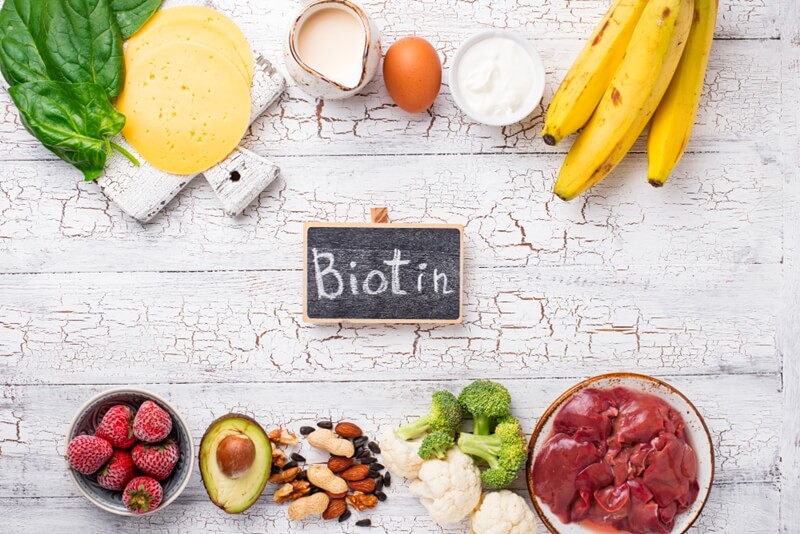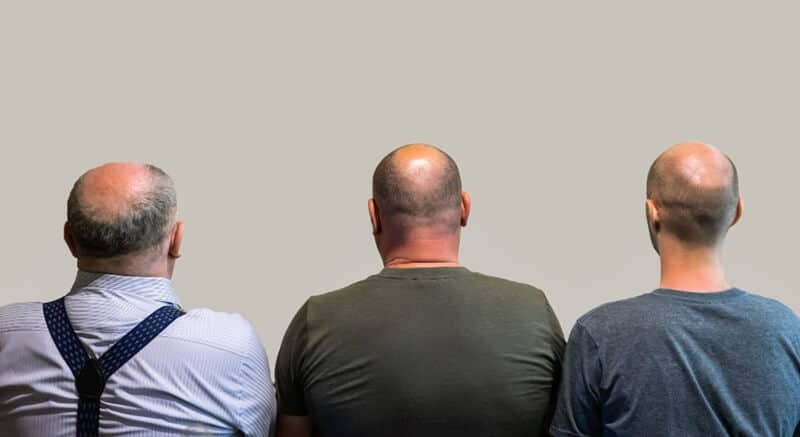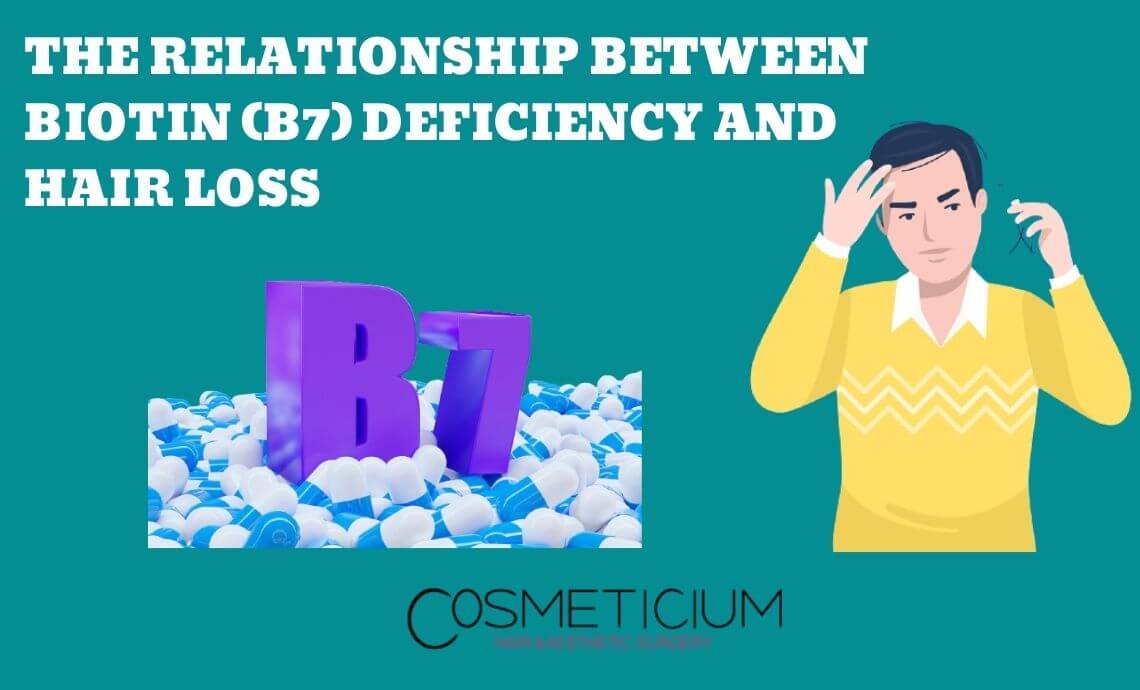Hair loss is one of the major problems experienced by both men and women today. The loss due to different reasons affects people not only in terms of appearance but also psychologically. Nowadays, an important number of people search the internet for the determination of the reason and the treatment of hair loss. A significant portion of the results of these studies states that biotin supplementation can reduce falling. So, does biotin deficiency cause hair loss? What are the symptoms and consequences of biotin deficiency? Details are in our article.
Table of Contents
What is Biotin?
Biotin, also known as vitamin B7, is a substance associated with hair loss. Today, although its effectiveness has not been scientifically proven, it is used in the treatment of male pattern hair loss and alopecia. Prescribed by dermatologists and other healthcare professionals, biotin is one of the vitamins that are easy to find and apply. This is why it has become a popular hair supplement.
Biotin is a coenzyme that helps metabolic reactions such as gluconeogenesis and fatty acid synthesis required for skin and hair. It is also expressed as vitamin H or vitamin B7. Apart from these, it will be useful to know that it is also named in different ways.

Read Also: Do You Have Too Much Hair Loss in the Shower?
The Reasons Biotin Deficiency
Biotin deficiency is an extremely rare condition. However, if a deficiency is detected, possible reasons are investigated. The causes of biotin deficiency and their explanations are as follows:
1. Long Terms Diets
As a result of long-term and strict diets, you cannot get enough of some nutrients that your body needs. Biotin deficiency can also occur as a result of such diets.
2. Medications
Some of the medications used can affect the absorption of vitamins. Some of the anti-seizure medications and antibiotics have such side effects. Besides, antibiotics may also have an effect where they cause the biotin-producing bacteria in the intestines to die. Therefore, it may be possible that the medications used adversely affect the biotin level in your body.
3. Intestine Problems
It is a known condition that chronic intestinal problems affect the absorption of nutrients. There may be a decrease in biotin level due to intestinal disorders such as Colitis and Crohn’s.
4. Intravenous (IV) Nutrition
If you cannot consume solid foods due to a different disorder and you are fed with the help of a tube, you may need biotin supplementation in this process.
5. Genetic Elements
Biotin deficiency may develop due to genetic disorders such as holocarboxylase synthetase deficiency and phenylketonuria.

Read Also: Which Genes Trigger Hair Loss?
How to Understand the Symptoms of Biotin Deficiency?
Biotin deficiency is not common in healthy people. The most important reason for this is the presence of vitamin B7 in many consumed foods. However, there may sometimes be a decrease in your biotin level due to different reasons. In such cases, the following symptoms will occur:
- Dry or scaly skin
- Sensitive hair
- Hair loss
- Insomnia or difficulty in sleeping
- Nausea
- Depression
- Muscle pain
- Dry eyes
- Tiredness
- Loss of appetite
- Seizures
- Difficulty in walking
- A tingling sensation in many parts of the body
The symptoms of biotin deficiency are generally as above. These symptoms should be taken seriously and a doctor should be consulted if experienced.
Consequences of Biotin Deficiency
Biotin deficiency is a problem that can have significant consequences if not treated. Some of these negative consequences are:

- Hair Loss
- Male or female pattern baldness
- Weakened muscles
- Movement and balance difficulties
- Seizures
- Loss of Sight
- Loss of Hearing
- Skin rashes
- Respiratory problems
- Fungal infections
The results mentioned here begin to be seen some time after the biotin level decreases. If the biotin deficiency is not eliminated, the severity of the consequences may increase. There is a possibility that they may even become life-threatening after a while. Therefore, it should be approached seriously.
Read Also: Hair Loss Is Not Your Destiny
Foods Containing Biotin
The amount of biotin in the foods consumed is at a level that can easily meet the needs of people. The daily biotin requirement is 5 mcg for children, 30 mcg for adults, and 35 mcg for pregnant women. The following foods can be consumed for this need:
- Dairy products such as milk, yogurt, and cheese
- Kidney, liver, and other offal
- Seafood
- Cooked eggs and raw egg whites
- Corn, barley, and other whole grains
- Green peas
- Lentils
- Legumes
- Sunflower seeds and oil
- Carrot
- Mushroom
- Cauliflower
There is an important point to know about foods containing biotin. Yes, many products contain vitamin B7. However, this vitamin is lost with food processing. Therefore, you should be careful to consume as many unprocessed foods as possible to get the biotin you need.
Read Also: How Can You Assess the Level of Hair Loss with the Norwood Scale?
CONCLUSION
Biotin deficiency can trigger the initiation of the process leading to hair loss and even permanent baldness. Therefore, a balanced diet should be prioritized. In case of deficiency symptoms, a specialist should be consulted immediately. You can get help from Cosmeticium experts for hair loss due to a lack of biotin level or a different reason. Thanks to our free online consultation service, you can direct your questions to our experts.

Fill Out the Form Below to Get Answers to Your Questions Within Hours from Our Doctors About Hair Loss & Hair Transplantation. (FREE)

